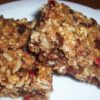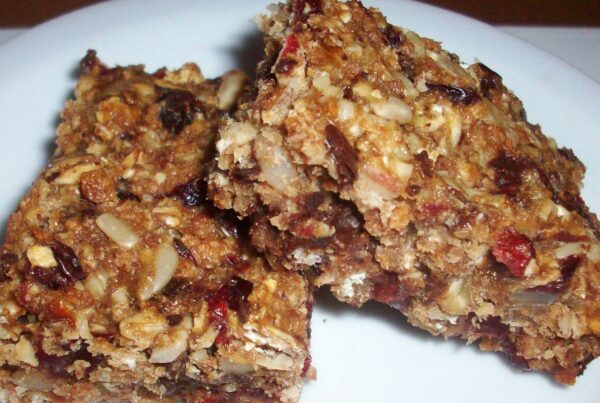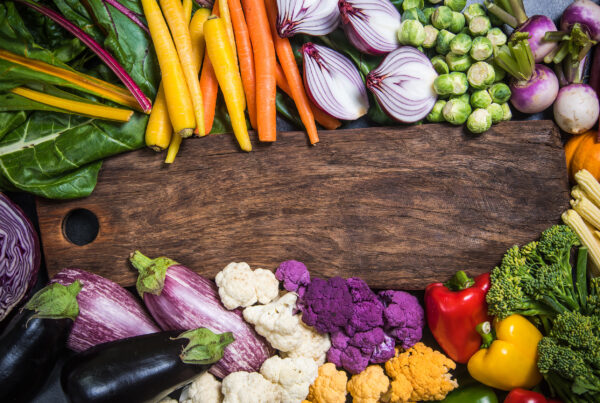A guide to starting your journey with simple solutions to better your health & mindset
Treat your kitchen like a workspace. Here are some tips for what and how to declutter.
Spices: Throw away old spices, combine duplicates, and decide if you need a new display or spice rack.
Drawers: Use drawer bins to organize utensils or other items or set them in a large jar on the countertop. Maybe you need something new to help you organize!
Flatware: Recycle all chipped items and arrange like items together. Recycle all items that are missing lids and stack everything neatly.
Pantry: Empty boxed and bagged foods into clear storage containers. Containers can help you see what you’re running low on. Purchase portion-perfect scoops and leave them in containers of nuts, seeds, and grains.
Fridge/freezer: Toss expired items, combine duplicates, and wash the shelves.
Counters: Take everything off and return only what’s necessary. Mount what you can onto a wall. Remove all food except for a bowl of your favorite fruit
Shopping Staples
Produce
Lettuce, Broccoli, Cucumbers, Avocado,, Onions, Garlic, Lemons & limes Bell peppers, Apples, Bananas *Seasonal produce
Grains
Brown rice, Whole wheat pasta, Quinoa
Freezer
Chicken, Salmon, Frozen Fruit, Spinach, Frozen pizza, or other meals
Refrigerator
Hummus, Tofu, Eggs, Yogurt, Milk
Pantry
Lentils, Beans, Soup, broth/stock, Tahini, Dried fruit, Nuts, Nut butter, Crackers, Popcorn, Olive oil, Balsamic vinegar
Why shop for food in season? It’s better for your health, tastebuds, environment, and wallet!
Spring
Blood oranges, Grapefruit, Pineapple, Strawberries, Spinach, Beets, Asparagus, Kale, Radishes
Fall
Apples, Pears, Persimmons, Pomegranates, Squash, Yams, Potatoes, Artichoke, Brussels sprouts, Cauliflower, Pumpkin
Winter
Citrus fruits, Kiwi, Carrots, Celery, Kale Onions, Swiss chard, Winter squash
Summer
Apricots, Avocados, Berries, Melons, Plums, Peaches, Cherries, Cucumber, Eggplant, Summer squash, Corn, Arugula
Good Mood Food
The majority of serotonin, a hormone that stabilizes mood and happiness, lives in your gut.
Vitamin B6
Needed to produce serotonin, B6 is the main neurotransmitter that regulates mood & sleep. Too little serotonin is associated with depression. Find it in pistachios, garlic, salmon, tuna, chicken, spinach, cabbage, bananas, sweet potatoes, avocados, and whole grains.
DHA
The main omega-3 fat in the brain. DHA promotes production of brain- derived neurotrophic factor (BDNF), a hormone that protects neurons and promotes the birth of new brain cells. Find it in wild salmon, oysters, anchovies, mackerel, mussels, seeds, and beans.
Prebiotics
These are foods that feed the gut’s good bacteria and promote their growth. Find it in onions, asparagus, artichokes, garlic, bananas, and oats.
Probiotics
These are bacteria that add to the bacteria already in your gut. Find it in yogurt, sauerkraut, kefir, kimchi, and other fermented vegetables like turnips, cucumbers, and carrots.
Makin’ Meals
The key to balance is making sure most meals contain protein, vegetables, complex carbohydrates, and healthy fat.
Lean Protein
Find lean protein in skinless chicken, turkey breast, fish, lean steak and pork, eggs, tofu, beans, and low-fat dairy. Including 3-4 oz (roughly palm size)of lean protein per meal will help keep you satiated.
Veggies
Non-starchy vegetables include everything from lettuce to carrots, cucumbers, broccoli, cauliflower, mushrooms, and peppers. They are fiber-rich, which helps keep us full, and have lots of minerals and vitamins. Add in 2 servings of veggies at lunch and dinner. One serving is 1 cup raw (fistful) or 1/2 cup cooked.
Complex Carbohydrates
Complex carbohydrates include starchy veggies like potatoes and corn, whole grains like brown rice, quinoa, and whole wheat bread, beans, lentils, and fruit. These give the body fiber and are a slow burning fuel that will keep us full for hours. Carbohydrates are our preferred source of energy!
Healthy Fats
Add in some unsaturated fatty acids like olive oil, avocado, nuts, and seeds to your meals. The fats will help you feel fuller for longer and are a delicious addition to any meal. Try a ping pong ball size of oil-based dressing on salads.
Vitamin ZZZ
When we don’t get enough sleep our bodies produce more ghrelin, the hormone that makes us hungry, and produces less leptin, the hormone that tells us we’re full. Try these foods with melatonin and tryptophan for more sleep.
Kiwis
Kiwis are full of vitamin C and E, potassium, and folate. Eating 2 kiwis an hour before bed can help you fall asleep faster and get a better-quality sleep.
Tart Cherries
Tart cherries, or cherry juice, have a high concentration of melatonin. Drinking 2 one-cup glasses of tart cherry juice a day can help provide a more efficient sleep.
Nuts
Nuts contain melatonin, magnesium, and zinc. Have a few handfuls a day to get those sleep-promoting nutrients.
Turkey
Yup, the thing that makes you sleepy after your Thanksgiving meal. It contains tryptophan which helps your body make serotonin. Eat 3oz two hours before bed with complex carbohydrates like brown rice or whole wheat bread
Yogurt
Yogurt contains calcium which helps process sleep hormones–like tryptophan and melatonin. Have yogurt as a snack or meal– bonus if you add some nuts!







